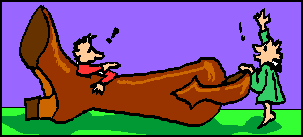Yenta is still under active development, but this particular page is not. If you're interested in current research papers about Yenta, or obtaining a copy of Yenta, please start here instead. This page is one of many that were written in late 1994 and early 1995, and are being preserved here for historical purposes. If you're viewing this page, you probably found it via an old link or are interested in the history of how Yenta came to be. These pages have not been actively maintained since 1995, so you'll find all sorts of older descriptions which may not match the current system, citations to old papers and old results, and so forth. |

.mailrc
file, which is used by several UNIX mail programs to store shorthand
names for other email addresses the user corresponds with frequently)
for clues, then try to contact those locations.
Lenny Foner Last modified: Wed Dec 7 20:51:36 1994